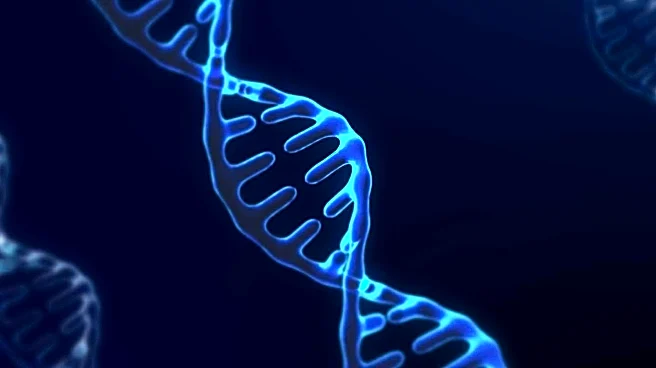What's Happening?
Researchers at the University of Cambridge have conducted an international study revealing that autism diagnosed in early childhood differs genetically and developmentally from autism diagnosed later in life. The study analyzed data from over 45,000 autistic individuals across Europe and the U.S., identifying distinct genetic profiles associated with early and late diagnoses. Early-diagnosed autism is linked to communication difficulties in infancy, while later-diagnosed autism is associated with social and behavioral challenges during adolescence, along with higher rates of ADHD, depression, and PTSD. The findings challenge the notion of autism as a singular condition, suggesting it encompasses multiple phenomena with diverse etiologies and developmental trajectories.
Why It's Important?
This study has significant implications for the understanding and treatment of autism. By identifying distinct genetic and developmental profiles, it suggests that autism is not a single condition but rather a spectrum of disorders with varying causes and manifestations. This could lead to more personalized approaches in diagnosis and treatment, improving outcomes for individuals with autism. The research also highlights the need for early intervention and support, particularly for those diagnosed later in life who may be at increased risk for mental health issues. Understanding these differences can help tailor educational and therapeutic strategies to better support autistic individuals throughout their lives.
What's Next?
The study suggests further research is needed to explore the interaction between genetic factors and social influences that contribute to mental health outcomes in later-diagnosed autistic individuals. Researchers aim to understand how autism traits emerge at different life stages, which could enhance diagnostic and support strategies for autistic people of all ages. This ongoing research may lead to new insights into the biological and environmental factors influencing autism, potentially informing public health policies and educational practices.
Beyond the Headlines
The findings underscore the complexity of autism and the importance of considering individual differences in genetic and developmental profiles. This research could shift the paradigm in autism studies, encouraging a more nuanced approach to understanding neurodevelopmental disorders. It also raises ethical considerations regarding the diagnosis and support of autistic individuals, emphasizing the need for inclusive and adaptive systems that recognize the diversity within the autism spectrum.












